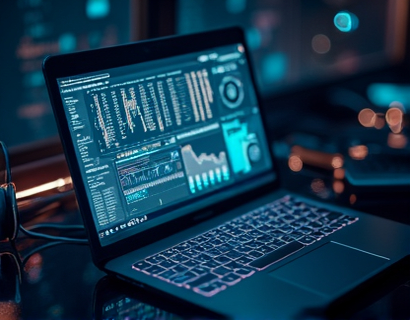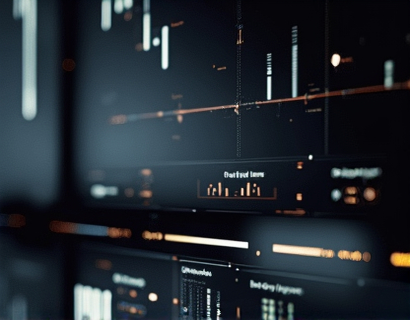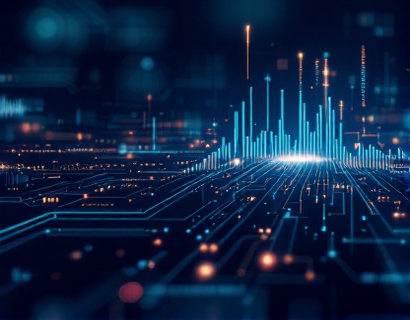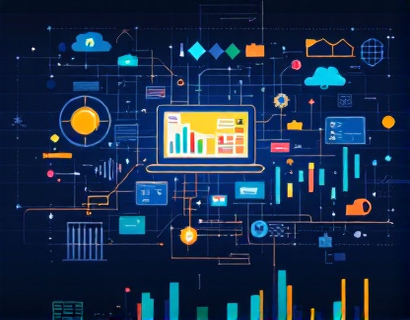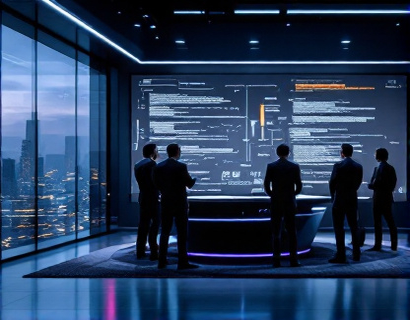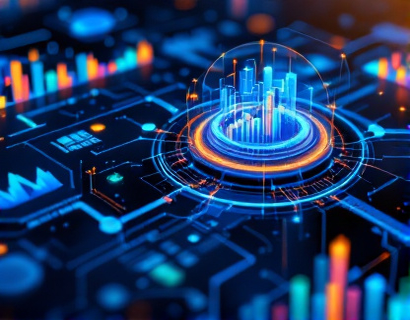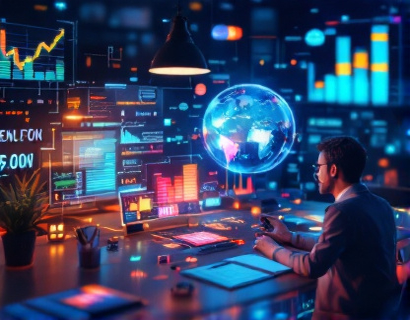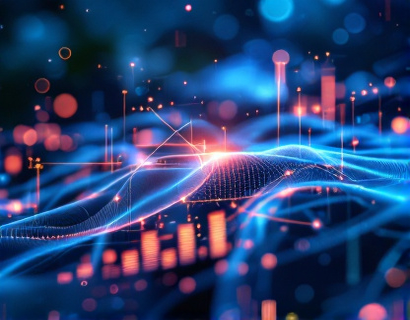Unlocking Next-Gen Productivity with AI and Crypto: A New Era of Digital Solutions
The integration of Artificial Intelligence (AI) and cryptocurrency is revolutionizing the way we approach digital productivity. This synergy is not just about combining two advanced technologies but about creating a new paradigm where efficiency, task management, and innovation converge. For tech innovators and early adopters, this intersection offers unprecedented opportunities to redefine productivity in the modern workplace. This article delves into how AI and cryptocurrency are reshaping digital solutions, providing insights and examples that highlight the potential of these technologies to transform productivity.
Understanding the Synergy: AI and Cryptocurrency
AI and cryptocurrency, though distinct, share a common foundation in decentralization and data-driven decision-making. AI's ability to process vast amounts of data quickly and accurately complements cryptocurrency's decentralized and secure nature. When combined, these technologies can create robust systems that enhance productivity by automating tasks, ensuring data integrity, and providing transparent, tamper-proof records.
The synergy between AI and cryptocurrency is evident in several key areas: smart contracts, decentralized applications (dApps), and blockchain-based data management. Smart contracts, self-executing contracts with the terms directly written into code, leverage AI to automate and enforce agreements without intermediaries. This not only speeds up processes but also reduces the risk of human error and fraud.
Smart Contracts: Automating Tasks with AI
Smart contracts are a prime example of how AI and cryptocurrency can enhance productivity. By automating the execution of contractual obligations, smart contracts eliminate the need for manual oversight and intermediaries. For instance, in project management, smart contracts can automatically release payments to contractors once milestones are met, verified by AI-driven audits. This ensures that tasks are completed efficiently and transparently, with all parties having real-time access to the contract's status.
Moreover, AI can optimize smart contracts by analyzing patterns and predicting potential issues. Machine learning algorithms can identify common bottlenecks and suggest improvements, making smart contracts more robust and efficient. This AI-enhanced approach to smart contracts is particularly beneficial in industries like supply chain management, where multiple parties and complex processes are involved.
Decentralized Applications (dApps) for Enhanced Collaboration
Decentralized applications (dApps) built on blockchain technology offer a new way to collaborate and manage tasks. Unlike traditional applications hosted on centralized servers, dApps are distributed across a network of computers, ensuring higher security and reliability. AI integrates seamlessly into dApps to enhance collaboration and productivity.
For example, AI-powered chatbots within dApps can facilitate real-time communication and task assignment among team members. These chatbots can analyze past interactions and suggest optimal workflows, reducing the time spent on coordination and increasing overall efficiency. Additionally, AI-driven analytics can provide insights into team performance, helping managers identify areas for improvement and optimize resource allocation.
Blockchain-Based Data Management: Ensuring Integrity and Transparency
Blockchain technology provides a secure and transparent way to manage data, which is crucial for maintaining productivity in a digital workspace. By storing data on a decentralized ledger, blockchain ensures that information is immutable and accessible to all authorized parties. AI enhances this by analyzing data patterns and providing real-time insights.
In a corporate setting, blockchain-based data management can streamline document management and version control. AI algorithms can track changes, verify authenticity, and ensure that all team members are working with the most up-to-date information. This reduces the risk of errors and miscommunications, leading to more efficient project execution.
Cryptocurrency for Decentralized Rewards and Incentives
Cryptocurrency plays a vital role in creating decentralized reward and incentive systems that motivate productivity. Traditional reward systems often involve intermediaries, which can lead to delays and increased costs. By using cryptocurrency, organizations can create transparent and immediate reward mechanisms.
For instance, a company can issue tokens as rewards for completing tasks or achieving specific goals. These tokens can be traded or redeemed for various benefits, such as access to premium features or discounts on services. AI can optimize these reward systems by analyzing performance data and adjusting token distributions to maximize motivation and productivity. This data-driven approach ensures that rewards are aligned with individual and team performance, fostering a culture of continuous improvement.
Case Studies: Real-World Applications
Several organizations have already begun to leverage the combination of AI and cryptocurrency to enhance productivity. One notable example is a tech startup that implemented a blockchain-based project management platform integrated with AI-driven analytics. The platform allowed team members to track progress, assign tasks, and receive real-time feedback.
The AI component analyzed project data to identify bottlenecks and suggest optimizations. Additionally, the platform used cryptocurrency tokens to reward team members for meeting deadlines and contributing to the project's success. This dual approach not only improved task management but also created a motivating environment that boosted overall productivity.
Another example is a decentralized marketplace for freelance services, where AI-powered matchmaking algorithms pair clients with the most suitable freelancers based on skill sets and past performance. The marketplace uses cryptocurrency for transactions, ensuring secure and transparent payments. AI-driven analytics help freelancers improve their profiles and attract more clients by highlighting their strengths and achievements.
Challenges and Considerations
While the potential of AI and cryptocurrency in enhancing productivity is significant, there are challenges that need to be addressed. One major concern is the regulatory landscape, as both AI and cryptocurrency are still evolving fields with varying levels of regulation across different regions. Organizations must navigate these regulations carefully to ensure compliance and avoid legal issues.
Another challenge is the technical complexity involved in integrating AI and blockchain technologies. Developing robust and secure systems requires expertise in both domains, which can be a barrier for some organizations. However, as the technology matures and more tools become available, these challenges will become more manageable.
Future Outlook: The Next Generation of Digital Solutions
The future of productivity lies in the continued integration of AI and cryptocurrency. As these technologies advance, we can expect even more innovative solutions that further enhance efficiency and task management. For tech innovators and early adopters, staying at the forefront of this revolution will be crucial for maintaining a competitive edge.
The combination of AI and cryptocurrency is not just a trend but a fundamental shift in how we approach digital productivity. By leveraging these technologies, organizations can create more transparent, secure, and efficient work environments. The next generation of digital solutions will continue to push the boundaries of what is possible, paving the way for a more productive and innovative future.







